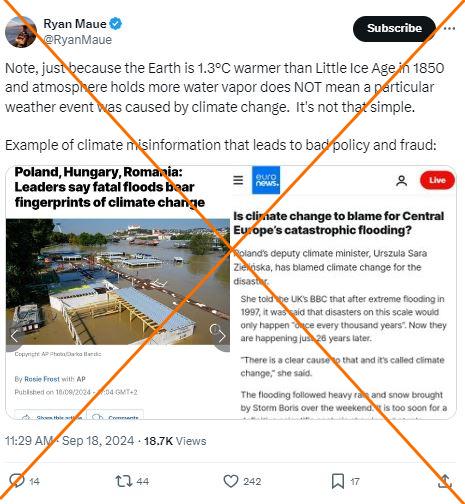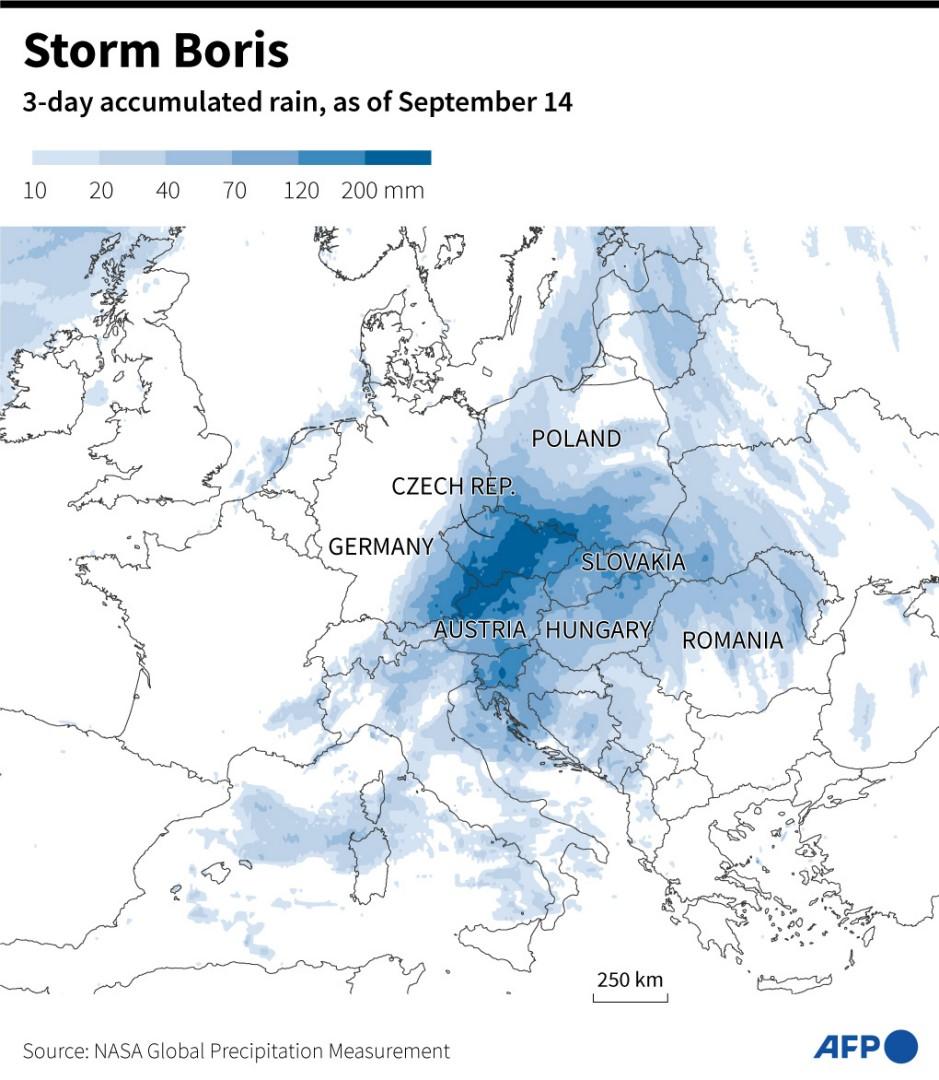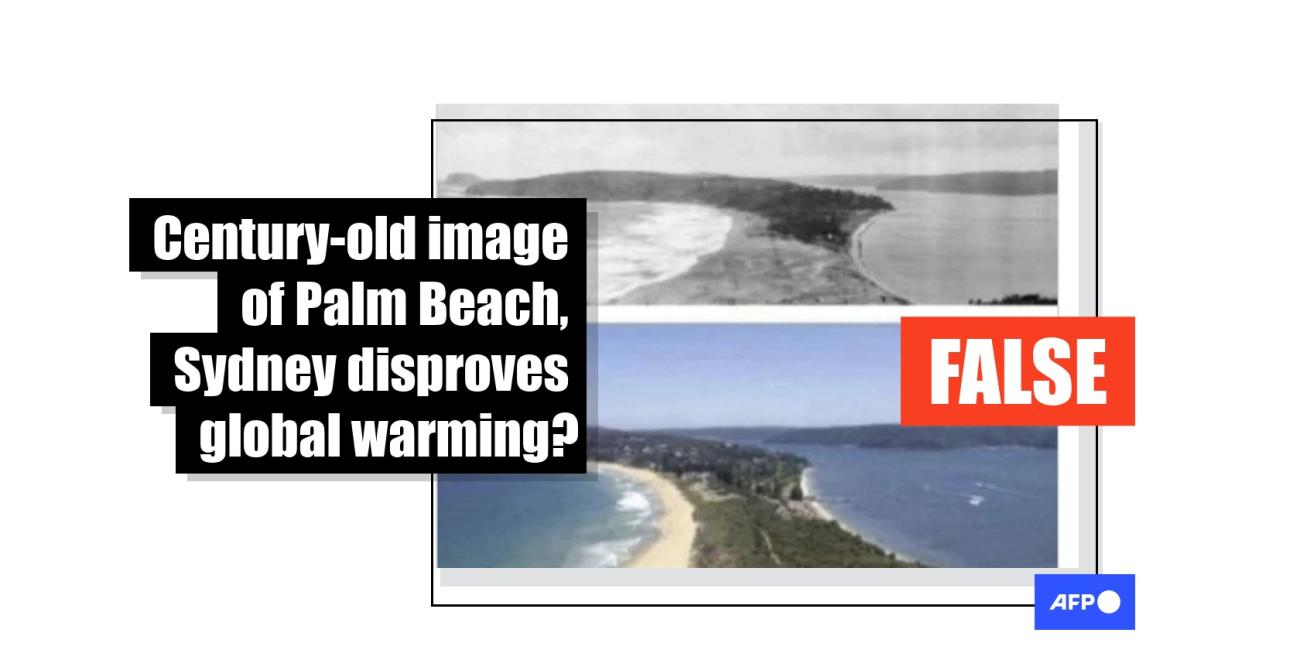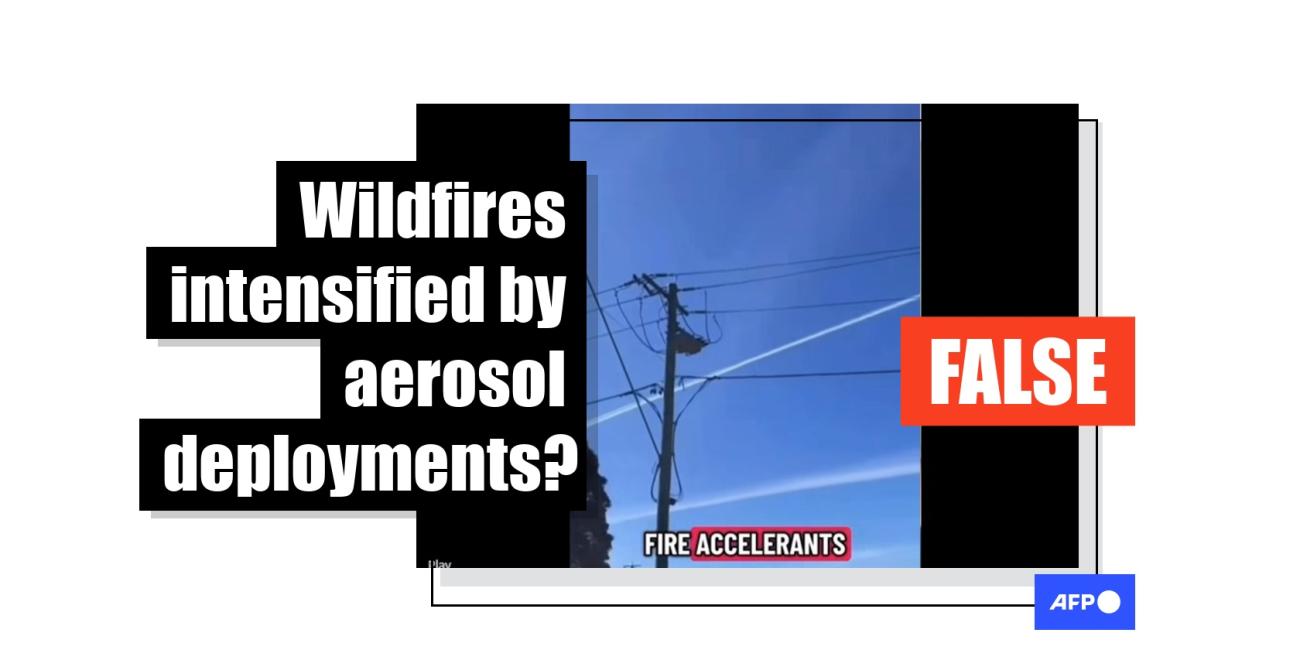
Climate change likely factor in Central Europe floods, scientists say
- This article is more than one year old.
- Published on September 20, 2024 at 22:58
- 3 min read
- By Manon JACOB, AFP USA
"Note, just because the Earth is 1.3°C warmer than Little Ice Age in 1850 and atmosphere holds more water vapor does NOT mean a particular weather event was caused by climate change," said Ryan Maue, a meteorologist and internet personality -- who has repeatedly used his platform to express skepticism about climate science -- in a September 18, 2024 post on X.

Similar sentiment, dismissive of the role of global warming in current storms across Europe, circulated elsewhere on X and Facebook as Storm Boris brought heavy rainfall leaving at least 24 people dead and some areas still under threat from rising waters.
Multiple news organizations, including AFP, reported that the events were reflective of how extreme weather is intensified by anthropogenic warming -- which in turn fueled criticism from skeptics.
But "the event perfectly fits the global picture of more intense rainfall in a warming climate," said Erich Fischer, ETH Zurich's environmental systems science lecturer (archived here).
He told AFP on September 19: "This has been predicted in papers and reports in the 1990s. We now clearly see this change also in observations, including observations for Austria, Germany and Switzerland."
Scientists have found that extreme precipitation has intensified at most stations in Central Europe over the last century (archived here).
While similar weather systems are not new, they now occur in a warmer atmosphere, which makes the precipitation more intense than if the same event had happened in the past.

"Early predictions are now confirmed by observations and models. So no one can claim that this came unexpected," Fischer concluded.
The latest assessments on the likelihood of extreme events in a changing climate by a consortium of independent scientists for the United Nation's Intergovernmental Panel on Climate Change also details "robust evidence" of the increase in magnitude and intensity of extreme precipitation in Europe since the 1950s (archived here).
Iris De Vries, also of ETH Zurich (archived here), said on September 18: "There is clear, unambiguous evidence that climate change will and has already changed the range of possible rainfall events," as warmer air holds more water.
An analysis by ClimaMeter, a rapid weather extreme event initiative coordinated by the French National Centre for Scientific Research and Institut Pierre Simon Laplace, said: "We interpret Storm Boris as an exceptional event in terms of precipitation and a very uncommon event in terms of pressure pattern whose characteristics can mostly be ascribed to human driven climate change" (archived here).
"Natural climate variability likely played a modest role" in the recent floods, it said on September 17.
Scientists project heavy rain will increase by more than 35 percent in central and eastern Europe during the 2071-2100 period compared with 1971-2000 -- leading to more frequent and damaging flash floods (archived here and here).
"The catastrophic rainfall hitting Central Europe is exactly what scientists expect with climate change," Joyce Kimutai (archived here), researcher at the Grantham Institute of Climate Change and the Environment, at the Imperial College in London, agreed.
"Floods like these can kill dozens of people and cause damages worth billions of euros, and they will keep getting worse until we replace fossil fuels with cleaner, renewable sources of energy," she said on September 19.
AFP has debunked claims about extreme floods in other regions and their ties to climate science.
Copyright © AFP 2017-2026. Any commercial use of this content requires a subscription. Click here to find out more.
Is there content that you would like AFP to fact-check? Get in touch.
Contact us




